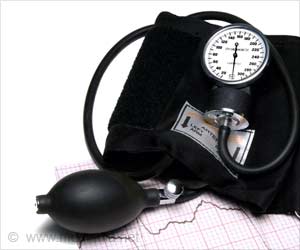
‘The number of people in UK dying from heart disease halved between 2005 and 2015, with the death rate falling from 80 deaths per 100,000 to 46 per 100,000.’




Coronary heart disease is caused by a reduction in blood supply to the heart muscle. The coronary arteries that supply the heart become blocked by a build-up of fatty substances in the artery wall - reducing blood flow. The disease causes heart attack (where blood supply becomes completely blocked), can lead to heart failure (where the heart muscle becomes damaged), and is linked to a number of factors including smoking, high cholesterol, high blood pressure and diabetes. The team, funded by the Wellcome Trust and the NIHR Imperial Biomedical Research Centre, analysed the global impact of heart disease by assessing World Health Organisation data on heart disease deaths.
The World Health Organisation keeps comprehensive information on all deaths worldwide, and their causes. When a death occurs, it is reported to a local civil registry. The cause of death is also recorded, and each country's national authority submits all deaths annually to the World Health Organisation. This data is publicly available and can be used to report important findings.
The research, which was published in the journal Circulation: Cardiovascular Quality and Outcomes also analysed the number of UK deaths from infectious diseases, liver disease and respiratory conditions. They found the number of deaths was 5, 10 and 20 per 100,000 respectively.
The scientists behind the research say although the reduction in mortality rate over the last decade is to be celebrated, factors such as obesity and diabetes keep the death toll too high.
Advertisement
The findings revealed that:
Advertisement
The rate of heart disease deaths in Germany, Poland and Russia (2013 data) were higher than that of the UK in 2015, with 55, 55 and 220 deaths per 100,000 people.
Italy, Norway and Spain had lower heart disease death rates than the UK in 2015, with 35, 35, and 30 per 100,000 (respectively)
The rate of heart disease in the USA was 60 deaths per 100,000 in 2015 - a drop from 90 per 100,000 in 2005.
The USA death rates from traffic accidents, liver disease, respiratory conditions, and lung cancer in 2015 were 13, 10, 25 and 30 per 100,000 respectively. The death rate from stroke in 2015 was 22 per 100,000.
The most recent death rates from heart disease in Brazil, Kazakhstan and Ukraine were 55, 100 and 325 per 100,000.
Although the death rates from heart disease in the lower income countries of Kazakhstan and Ukraine have fallen over the past decade, the research team say the rates remain high.
Dr Nowbar explained: "This analysis shows the number of heart disease deaths in Eastern Europe are 20 times higher than in higher income nations. This suggests the economy of a nation is a major contributor to heart disease risk - and that citizens of poorer countries may have less access to healthcare and public health interventions, which means heart disease deaths remain high."
The research team caution there are limitations to the data. Many countries, particularly from poorer nations, have not provided data to the World Health Organisation so the analysis is not completely comprehensive for all countries worldwide. They add that the death rates were adjusted for size and age of each population in each year.
The scientists add that, overall, the data suggest more public health interventions and initiatives to encourage healthy lifestyles are needed to tackle the millions of lives lost across the globe due to heart disease.
Source-Eurekalert













